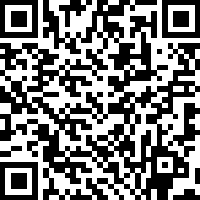2025 Power of Math Summit – November 24, 2025
2025 Power of Reading Summit - November 25, 2025
Free Virtual Conference
Reading Feedback Survey
https://indstate.qualtrics.com/jfe/form/SV_efn1ajZvoPdbfjE
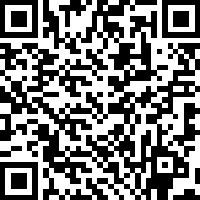
Math Feedback Survey
https://indstate.qualtrics.com/jfe/form/SV_enUteMmOfHOnFOe

Math Summit Presenters are:

Bio: Zachary “Zak” Champagne has spent the past 26 years in mathematics education, and he’s still as excited about it as a kid discovering their first pattern. He believes every student has important mathematical ideas and works to share that joy with teachers around the world. As Chief Content Officer at Flynn Education, Zak collaborates with an incredible team to create resources that spark curiosity and empower educators everywhere.
Before landing in the Pacific Northwest (where he’s fallen head-over-hiking-boots for the trails, the forests, and the endless mountain views), Zak served as a Lead Teacher and Director of Mathematics at The Discovery School in Jacksonville, Florida, teaching third and fourth grade. He’s also an author on the award-winning enVision Mathematics program published by Savvas.
His work has earned him state and national recognition, including the Presidential Award for Excellence in Mathematics and Science Teaching, Duval County Teacher of the Year, Finalist for Florida Teacher of the Year, and the Kenneth Kidd Mathematics Educator of the Year award. He’s been a keynote speaker and featured presenter at math education conferences across the country.
When he’s not talking math, you’ll probably find Zak at a live show, flipping through crates of vinyl (he has an extensive record collection), or on a trail somewhere in the Pacific Northwest. He posts on X at @zakchamp, shares math ideas on Instagram @zakchampmath, and writes at www.zakchamp.com.
Session 1 - Curious Kids in the Math Classroom
What does it take to build a math classroom where curiosity can thrive? In this session, we’ll dig into six key components that help create space for student-driven thinking and exploration. From offering real choice and normalizing uncertainty to designing better tasks and listening deeply to student ideas, we’ll reflect on ways to center curiosity in our daily practice. Drawing on my work as an author of the enVision Mathematics program, we’ll also explore how the program can help us use purposeful structures, intentional questioning, and rich tasks to foster curiosity in math classrooms.
Session 2 - Reframing What We Mean by Real World Math
This session reimagines "real-world math" by exploring how math is observed and practiced in everyday life. Participants will engage in activities that highlight noticing patterns, wondering about possibilities, and embracing curiosity-driven problem-solving. The session emphasizes flexible strategies, building student confidence, and understanding that real-world math is about exploring and making sense of the world, not just applying formulas.
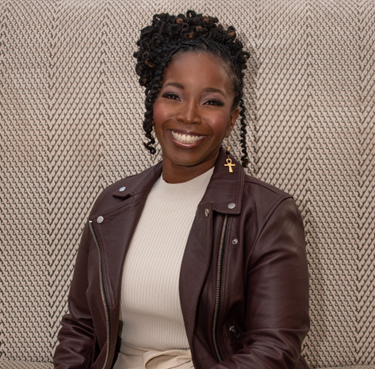
Bio: Deborah Peart Crayton is the founder and Queen Mather of My Mathematical Mind. She is the author of Readers Read. Writers Write. Mathers Math!: Bridging the Gap between Literacy and Mathematics. Deborah is a doctoral candidate focused on finding solutions to support elementary educators with improving math teaching efficacy by leveraging the confidence found in teaching literacy. Deborah speaks on various topics related to math identity, pedagogical content knowledge, and literacy connections to mathematics. She advocates for a mindful approach to teaching mathematics to address math anxiety, build confidence, and support the development of positive math identities. She has dedicated her career and doctoral studies to supporting educators with innovative teaching strategies that allow students to be curious problem-solvers and see themselves as assets to the learning community. Deborah believes all children deserve high-quality instruction, joyful learning experiences, and the opportunity to become competent and confident readers, writers, and mathers.
Session 1 - Building a Community of Mathers: The Power of a Positive Math Identity
The teacher sets the tone for the learning environment and needs to anchor the room. This session will establish a basic understanding of how mindset can set the stage for peace and productivity in the classroom. We will examine how mindsets and beliefs directly impact students' ability to be successful in mathematics. By engaging in math routines that focus on the Mathematical Practice Standards, participants will discover the untapped power of them. Math class is often a place where it is believed that some belong more than others, so educators must nurture the development of positive math identities and create a sense of belonging for all. It is time to extend the invitation to all students so they gain access to math joy and become competent readers, writers, and mathers.
Session 2 - Building a Community of Mathers: Fractions Our Frenemies?
Building a math community where it is safe to take risks and share ideas is critical to equitable mathematics instruction. Many students are in classrooms with limited opportunities for discourse, sense-making, and mathematical discovery. Together, we will explore practical ways to increase engagement without creating chaos. The content focus for this session will be fractions. We will explore ways to leverage instructional routines, visual models, and language for developing conceptual understanding, building community, and making sense of fractions beyond the part-whole relationship. Fractions don’t have to be scary. When we unlock our sense-making super powers, fractions can be quite friendly, and students can engage with them with confidence.
Kristen Acosta has been a math educator for over 25 years. She has taught TK-8 math as both a classroom teacher and a district math coach. As a math coach, Kristen found her calling in supporting other teachers. She has published several articles for nationally recognized magazines such as The Communicator and Edutopia. Additionally, Kristen was nominated for the Presidential Award for Excellence in Mathematics. Kristen’s work with math routines such as 3 Act tasks and Clothesline Math has been featured at Mashable Math, Math Before Breakfast , Learning Through Math (episode 127) Edutopia, Grassroots Workshops, Debate Math (episode 9), Math and Other Things, Math 4 All and Ready Set Growth. She was featured in the California Educator and in VoyageSTL. Kristen continues giving presentations, nationally and internationally, at various math conferences.
Kristen’s true passion is to have students as well as teachers realize that math can be innovative, engaging, and purposeful. The best math practices don’t necessarily have to come from a textbook. Math should be about active learning, conversation, and exploration.
Session 1 - The Power of Pictures: Utilizing Images to Engage Students in Math
Using pictures to start mathematical conversations is a sure-fire way to engage all learners. Images will spark curiosity. Visualizing math is the key to understanding and solving problems. Come see if a picture is worth a thousand words.
Session 2 - 3 Act Tasks: The Ultimate Math Lesson
Mathematics can be engaging through this story telling format. 3 Act tasks are visual performance tasks that engage students in conversation and strategic problem solving. Revealing the answer will be a momentous occasion in your classroom.
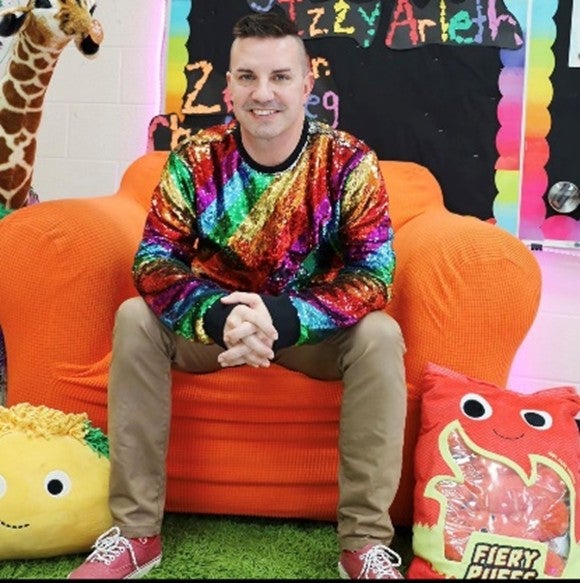
Bio: "I have been teaching for 20 years. I spent a year teaching fifth grade, two years in second grade and am now in my 17th year in Kindergarten, which I have determined is my calling & my passion. I plan to never leave the classroom, as the kids drive me to continue my growth as a teacher and person. I received my bachelor's degree from Indiana University and my ELL certification from David Lipscomb University. At the beginning of my career, I spent two summers teaching in Ecuador, and in 2015, my peers selected me as Teacher Of The Year. When I’m not in the classroom, I enjoy blogging and doing all things teach. I also value spending time with my family. Together with my husband (known as The Mister) on our blog), I own 3 small businesses that specialize in education resources and services. My family would not be complete without our five-year-old daughter and a bernadoodle dog named Dolly."
Session 1 - Mastering The Math Hour: In this session Greg walks you through his math block. He shares practical, classroom proven ideas and strategies to make your math block effective and engaging!
Session 2 - Creating Little Math Thinkers: In this session, Greg shares interactive, easy and effective lessons, games, books and strategies for a variety of math skills!
Reading Summit Presenters are:
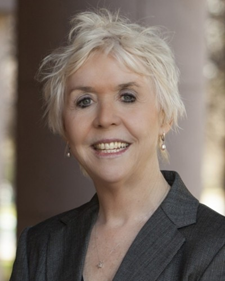
Bio: Dr. Sharon Vaughn is the Manuel J. Justiz Endowed Chair in Education and executive director of The Meadows Center for Preventing Educational Risk at The University of Texas at Austin. Sharon Vaughn was the editor-in-chief of the Journal of Learning Disabilities and the co-editor of Learning Disabilities Research and Practice. She is the recipient of the AERA SIG distinguished researcher award and The University of Texas Distinguished Faculty Award. She is the 2025 Recipient of the University of Texas Presidential Impact Award. She is the author of numerous books and research articles that address the reading and social outcomes of students with learning difficulties.
She is currently the principal investigator or co-principal investigator on several Institute for Education Sciences, National Institute for Child Health and Human Development, and U.S. Department of Education research grants investigating effective interventions for students with reading difficulties and students who are English language learners.
She is the author of more than 35 books, 250 peer-reviewed research articles and 65 chapters that address issues related to research and practice with learning problems. She has worked nationally and internationally with educators from Japan, Canada, Sweden, Norway, Portugal, Australia and Singapore.
11:00 AM- 11:50 AM
Misunderstandings of the Science of Reading – Sharon Vaughn
The Science of Reading (SoR) movement has invigorated educators’ interest in evidence-based practices for teaching reading. Spurred by dissatisfaction with stagnant test scores and provocative articles in the popular media, the SoR movement has led many teachers to question the validity of their practices and seek evidence-based programs. This presentation will identify the key findings and instructional practices that align with the SoR. This presentation will also identify common misunderstanding about SoR – many of which have influenced state and school standards, curriculum and criteria for instruction. Misperceptions about which practices are and are not evidence-based can result in programs and practices without research support to be mandated and codified into curricula and instructional practice. Similarly, these misperceptions can lead to the unnecessary abandonment of practices or materials that are incorrectly perceived as being inconsistent with the SoR. Ultimately, these misunderstandings can negatively impact students, educators, and families. The application of the SoR to instructional decision making will be provided.
12:00 PM - 12:50 PM
Aligning and Integrating Reading Instruction – Sharon Vaughn
This presentation emphasizes the powerful role of instruction and how what teachers do and say has a significant and direct influence on how students learn. Over a century of research informs how students’ learn and effective ways teachers can support this learning. We share several key principles of effective teaching that directly influence reading instruction and tap into core learning processes for adolescents and examples of how those principles can be applied in your classroom. These practices include how and why to align instruction across settings and teachers and how to integrate critical components of teaching and learning within academic learning. Specific examples of deliberate practices so students acquire the high impact knowledge, vocabulary, and relevant features of content learning as well as designing learning opportunities for application across learning settings. Opportunities to interact with the presenter and to leave with clear suggestions for classroom practices will be provided.
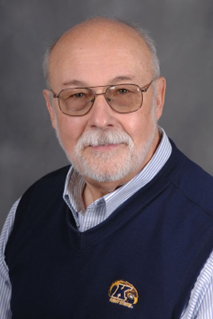
Bio: Timothy Rasinski is a professor emeritus of literacy education at Kent State University. He has written over 200 articles and has authored, co-authored or edited over 50 books or curriculum programs on reading education. His scholarly interests include reading fluency and word study, reading in the elementary and middle grades, and readers who struggle. His research on reading has been cited by the National Reading Panel and has been published in journals such as Reading Research Quarterly, The Reading Teacher, Reading Psychology, and the Journal of Educational Research. Dr. Rasinski is the first author of the fluency chapter for the Handbook of Reading Research. Dr. Rasinski served a three year term on the Board of Directors of the International Reading Association and was co-editor of The Reading Teacher, the world's most widely read journal of literacy education. He has also served as co-editor of the Journal of Literacy Research. Dr. Rasinski is past-president of the College Reading Association and he has won the A. B. Herr and Laureate Awards from the College Reading Association for his scholarly contributions to literacy education. In 2010, Dr. Rasinski was elected into the International Reading Hall of Fame. Prior to coming to Kent State, Timothy Rasinski taught literacy education at the University of Georgia. He taught for several years as an elementary and middle school classroom and Title I teacher in Nebraska. Tim is a veteran of the US armed forces.
9:00 AM EST-9:50 AM EST
Session 1 - Word Ladders and Word Study
Word decoding (phonics), encoding (spelling) and vocabulary (word meaning) are essential to success in reading (and writing). Yet too often teachers (and students) find approaches for teaching these key competencies overly scripted, complex and less than engaging. In this session Dr. Tim Rasinski will offer actionable, engaging, and effective (SOR) instructional approaches for helping students become masters and lovers of words.
10:00 AM EST-10:50 AM EST
Session 2 - Teaching Reading Fluency
Reading fluency has been found to be key elements of any effective reading program (National Reading Panel; SOR). Despite its importance many students fail to achieve sufficiently in fluent reading and many teachers do not feel fully knowledgeable in teaching fluency. In this presentation, Dr. Tim Rasinski will provide theoretical and research background and definition to fluency. He will share effective and engaging strategies for teaching this all-important reading competency that will move students toward better comprehension and greater proficiency in reading.
Rasinski - Fluency Master. Power of Reading.pdf
Rasinski - Word Study Word Ladder.pdf
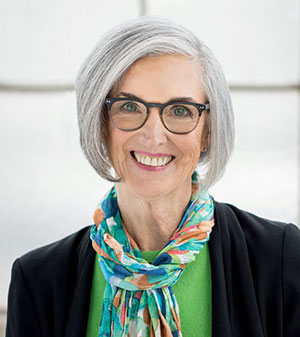
Bio: Dr. Jan Hasbrouck is a researcher, educational consultant, and author. She was a reading specialist and literacy coach for 15 years before teaching at the University of Oregon and later becoming a professor at Texas A&M University. She served as Executive Consultant to the Washington State Reading Initiative and as an advisor to the Texas Reading Initiative. Dr. Hasbrouck has provided educational consulting to individual schools across the United States as well as in Mexico, Peru, Guatemala, Honduras, Jamaica, and Germany, helping teachers, specialists, and administrators design and implement effective assessment and instructional programs targeted to help low-performing readers.
Dr. Hasbrouck earned her B.A. and M.A. from the University of Oregon, and completed her Ph.D. at Texas A&M. Her research in areas of reading fluency, reading assessment, instructional coaching, and English Learners has been published in numerous professional books and journals. She is the author and coauthor/coeditor of several books including "Conquering Dyslexia", "Reading Fluency", "Student-Focused Coaching" and "Climbing the Ladder of Reading & Writing", along with several assessment tools. Dr. Hasbrouck works with the McGraw Hill publishers as an author of their "Wonders" and "WonderWorks" reading and intervention programs. In 2019 she helped found Read Washington, a 501(c3) nonprofit organization with the mission to "provide professional development opportunities, based on the science of reading, so every student becomes a skilled and confident reader."
Hasbrouck - Fluency Where to Start.pdf
Hasbrouck - Fluency Comp.pdf
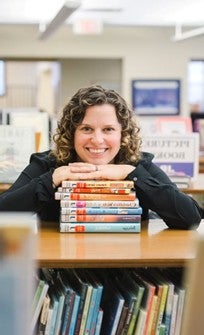
Bio: Dr. Molly Ness is a former classroom teacher, a reading researcher, and a teacher educator. She earned a doctorate in reading education at the University of Virginia, and spent 16 years as an associate professor at Fordham University in New York City. The author of six books, Molly served on the Board of Directors for the International Literacy Association and is a New York state chapter founder of the Reading League. Dr. Ness has extensive experience in reading clinics, consulting with school districts, leading professional development, and advising school systems on research-based reading instruction. She provided literacy leadership for nationally recognized literacy non-profits, as well as major educational publishers. She is the founder of Dirigo Literacy, a literacy consulting firm.
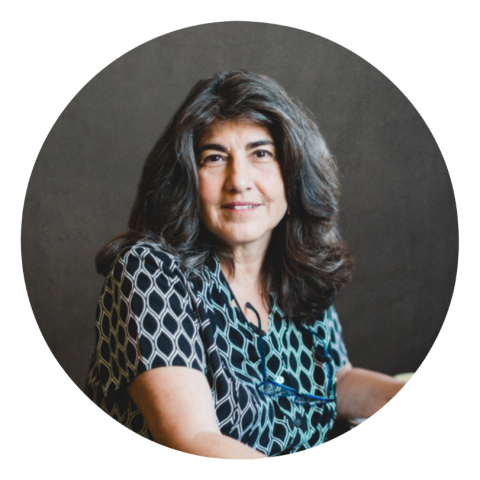
Bio: Joan Sedita is an experienced educator, serving in the roles of teacher, school administrator, teacher trainer, and literacy consultant since 1975. She has provided literacy professional development to thousands of educators and related professionals at schools, colleges, clinics, and professional conferences. Joan received her Masters in Reading Education from Harvard University in 1980, and her B.A. from Boston College in 1975.
From 1975 until 1998, Joan worked at the Landmark School in Massachusetts, a pioneer school in the development of reading and writing intervention programs. At Landmark, she was a teacher, supervisor of tutorials, English language arts department chair, and high school principal. She was also the founder and director of the Landmark College Preparation Program and director of the Landmark Outreach Teacher Training Program. During that time, Joan also conducted psycho-educational evaluations at Landmark and at Children’s Hospital in Boston.
From 1998 to 2007, Joan trained teachers and consulted with schools throughout the country, and was involved with several literacy projects. She was one of three Lead Trainers in Massachusetts for the Reading First Initiative and a consultant to the state’s Secondary Reading Initiative. Joan was a national LETRS author and trainer (Language Essentials for Teachers of Reading and Spelling), a member of the ETS Praxis National Reading Advisory Committee, and a member of the LD Worldwide Board of Directors. During this period, she developed the comprehension and vocabulary training programs that were the basis for Keys to Literacy’s signature programs, The Key Comprehension Routine and The Key Vocabulary Routine.
In 2007, she founded Keys to Literacy and is currently the CEO of the company. Joan continues to develop literacy professional development programs, mentors the Keys to Literacy staff and national literacy trainers/consultants, presents at literacy conferences, and consults with state departments of education and districts throughout the country.
Joan is the creator of The Writing Rope framework for writing instruction, and the lead author of the Keys to Literacy professional development materials, online courses, and books, including The Key Comprehension Routine, The Key Vocabulary Routine, Keys to Content Writing, Keys to Early Writing, and Keys to Beginning Reading. She has authored many books including The Landmark Study Skills Guide (1st ed. 1989), Study Skills: A Teaching Guide (2nd ed. 2001), Active Learning and Study Strategies Using Kurzweil 3000 (2003), and Writing: The Road to Reading Comprehension Module 11 of the LETRS reading training series (2004). She has also authored several book chapters and articles, including the “Adolescent Literacy” chapter in Multisensory Teaching of Basic Language Skills (J.R. Birsh, Ed., 2011) and the “Learning to Write and Writing to Learn” chapter in Fundamentals of Literacy Instruction and Assessment: 6-12 (M.C. Hougen, Ed., 2014). In 2022, her book, The Writing Rope: A Framework for Explicit Writing Instruction in All Subjects, was published (Brookes Publishing).
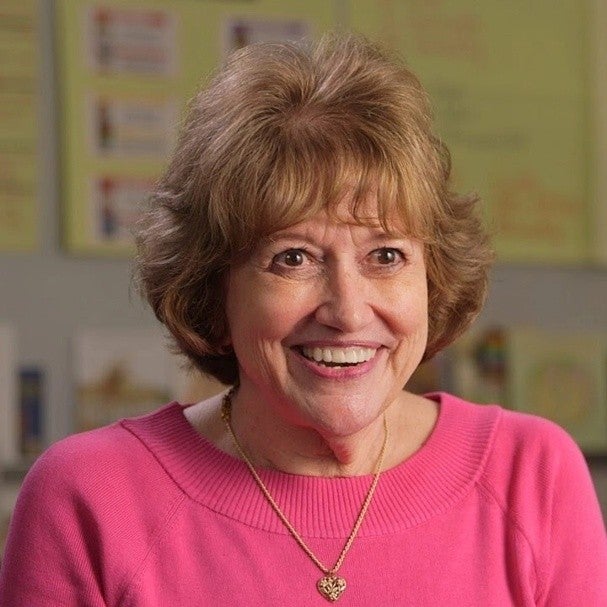
Bio: Volunteering to teach adult struggling readers was a natural for Linda, who is a former English teacher, school counselor, and lifelong bookworm. Linda met her mentor, Dr. Louisa Moats, while she was volunteering to teach adults to read. She has since coauthored the Teaching Reading Essentials Program Guide and Coaches Guide with Dr. Moats. Linda is also coauthor, with Michael Hunter, of Phonics Blitz™ (1st Edition), Phonics Boost™, and the Diagnostic Decoding Surveys. Linda was a National LETRS Trainer with Dr. Moats for seven years. She has been presenting workshops, giving speeches, authoring publications, and developing reading assessment and instructional materials for more than 10 years. To keep her skills fresh and innovative, Linda works with struggling readers of all ages whenever she gets the chance to do so.
Farrell - Slide Handouts Fastest Way to Catch Up.pdf
Farrell - Orthographic Skills Tracker.pdf
Farrell - Letter Song Template.pdf
Farrell - Practice Grid 1.xlsx
Farrell - Practice Grid 2.xlsx
Farrell - Practice Grid 3.xlsx
Farrell - Practice Grid 4.xlsx

